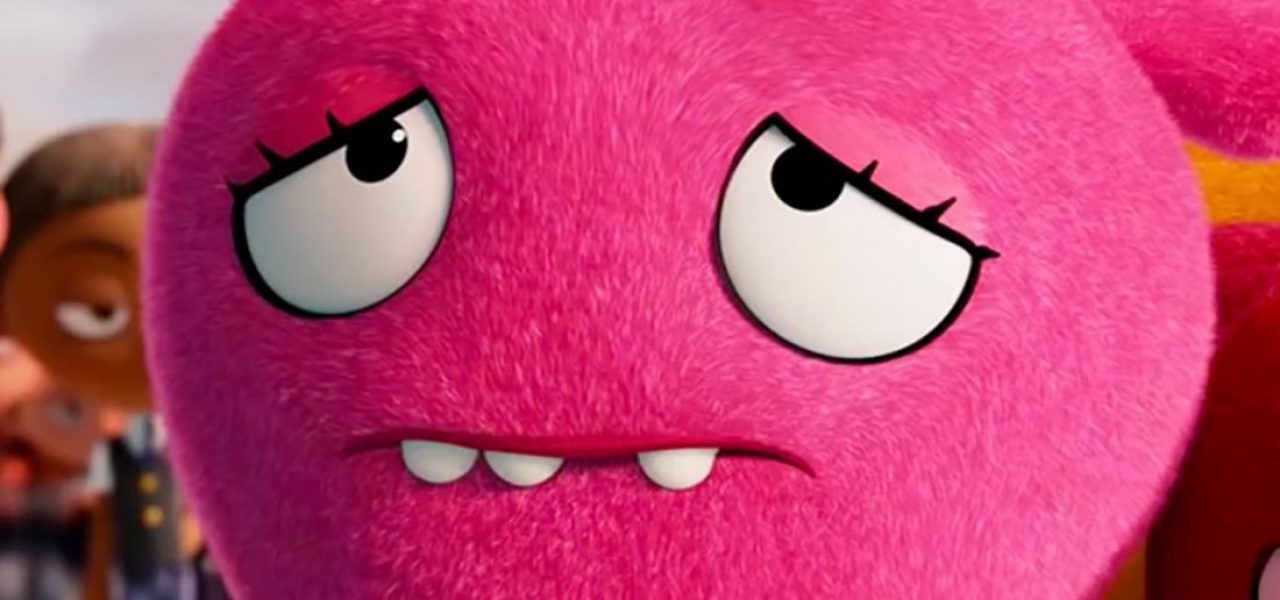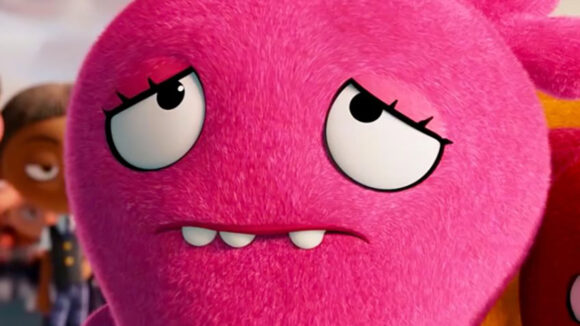

STX Wanted ‘Uglydolls’ To Be A Franchise. Instead They Got A Flop.
Another animated film, another lackluster start. It’s been an ugly year for animated features at the box office, and we’re only in May. The critically-maligned Uglydolls is now the fourth major U.S. release that has underperformed in 2019, following The Lego Movie 2, Wonder Park, and Missing Link.
STX Entertainment launched Uglydolls on a very wide 3,652 screens, netting an estimated $8.5 million, or $2,330 per screen. It was enough for Deadline to call it a “disastrous start.” Its long-term prospects look even more grim, with Pokemon Detective Pikachu opening in five days, promising to take away most of Uglydolls’ young viewership.
The numbers aren’t pretty considering how widely it was released and how extensively it was marketed: Uglydolls is second-widest independent animation release ever after 2013’s Free Birds. That film, released in 3,736 theaters, opened with nearly double the box office ($15.8 million) on its way to a domestic total of $55.7m.
Uglydolls is the first animation release from STX Films, the upstart studio overseen by Adam Fogelson, former head of Universal Pictures. The Kelly Asbury-directed film, which had a production cost of around $45-50 million, was intended to establish the independent STX as a legitimate producer of mid-range animated features.
If anything, the movie should serve as a great case study for the difficulty of creating commercially successful family animated features. A studio like Illumination makes it look easy, but it’s a tough act to replicate. STX had a lot riding on Uglydolls, and they’d reverse-engineered it from the start to ensure it would be a hit. It was based on a recognizable IP, it had quality production values (animation was handled by Reel FX and Original Force), and it boasted an all-star cast and big musical numbers. But simply having all the right ingredients doesn’t guarantee a hit; a film also has to have a reason to exist. Though its creators believed it had a reason to be made, audiences simply didn’t agree.
If there was an early inkling that STX didn’t quite understand the animation game, it was revealed in this 2016 New Yorker profile of Fogelson. The article laid out Fogelson’s top-driven approach to filmmaking, in which he claimed he could identify commercially-viable concepts, and afterward, it was simply a matter of getting the right people together to make the film. Fogelson’s belief is that filmmaking is just a matter of mixing together the right marketable ingredients. According to him, “seventy-five per cent of a movie’s success is due to its marketing and its marketability.”
In that piece, Fogelson talked about how Uglydolls would be an easy sell because the characters were physically imperfect. “How do you not want to see that?,” he asked. “There are so many good and easy ways to make you care about creatures who know they’re not attractive.”
True to Fogelson’s background as a marketing person, he put together over 100 promotional partners and products for Uglydolls including McDonald’s, Hasbro, Walmart, Carl’s Jr./Hardee’s, Pinkberry, Ferrero, and Pez Candy, among dozens of others. As Deadline said, “The optics of having all these partners on UglyDolls and not being able to open the movie to a sizeable number isn’t good.”
For STX, the failure of Uglydolls puts a big dent in their future plans, which had centered around turning Uglydolls into a major franchise. In a classic case of putting the cart before the horse, STX even took worldwide merchandising/licensing rights for Uglydolls toys and consumer products. Last year, they announced that Hulu had ordered 26-episodes of an Uglydolls series. At the time, one of their execs explained that Uglydolls was “conceived for franchise building across all platforms from film to television, digital, virtual reality, consumer products, and more.”
The tepid start of Uglydolls also raises questions about STX’s next release, Playmobil: The Movie, another toy-based movie for which it recently acquired rights. Unlike Uglydolls, STX didn’t develop Playmobil internally, only picking up distribution rights after the film’s original distributor, Open Road Films, went bankrupt. While Playmobil is a higher-budget production than Uglydolls, the recent performance of films like Lego Movie 2 and Uglydolls suggests that the toy-based animation genre isn’t the goldmine that a lot of studios expected it to be.
